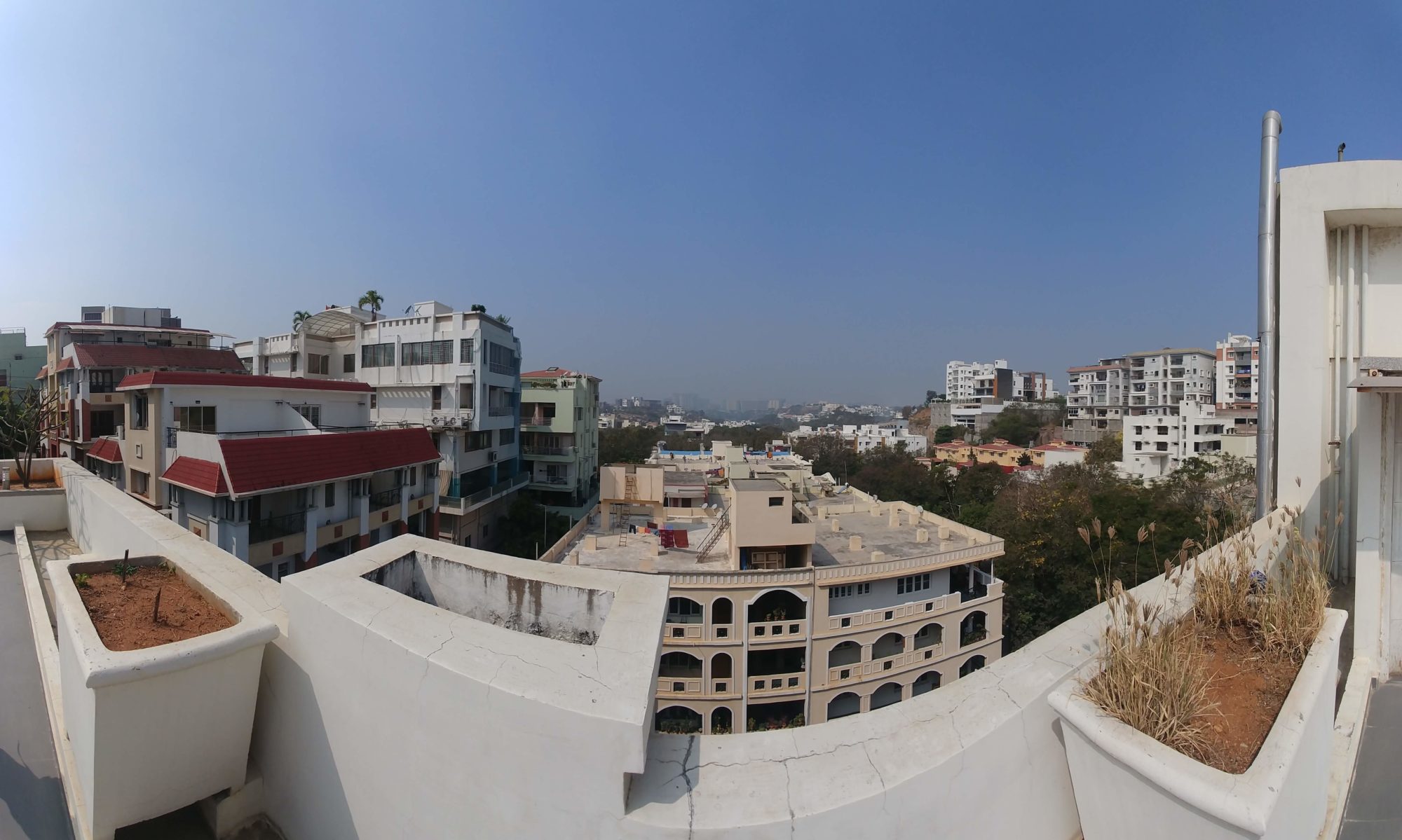The axiom “you always want what you can’t have” definitely holds true for me. The moment India shut down international flights on March 22, I decided I should go home. I wanted to avoid being indefinitely stuck in India, unable to get home, so I signed up with STEP, a program for reporting your location abroad to receive travel alerts and messages from the U.S. State Department.
Four days later, I received a link to a Microsoft form to fill out if I was interested in a repatriation flight. (Yeah, apparently Microsoft has a Google forms competitor, who knew?) I submitted my info with no response except an almost identical email that arrived every day for the next two weeks, requesting my information if I hadn’t sent it and asking me to sit tight if I had. Finally, I cracked and violated their instructions not to call the embassy. I was connected with a very youthful employee back in the U.S. who asked if I had tried booking a commercial flight. When I explained that the airport was shut down and I was calling about the repatriation flights, he suggested the government probably couldn’t fly me out if the airports were closed.
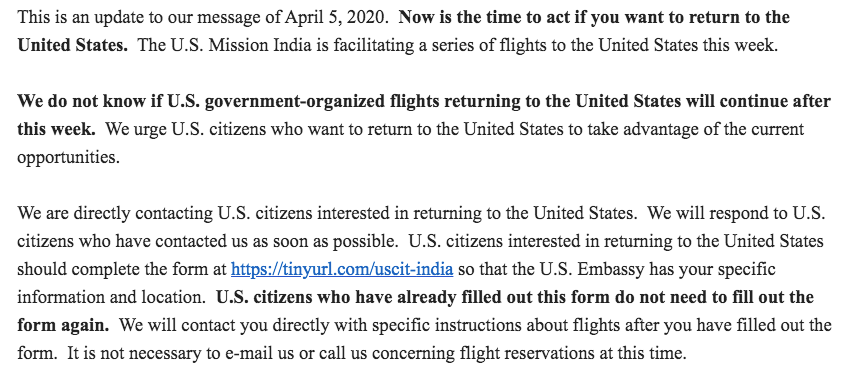
Desperate for information, it finally occurred to me to search Facebook. The group Americans Stuck In India turned out to be incredibly useful. I finally got an email address that connected me to the hero of our story, Ben. Ben is an incredibly nice guy actually working at the U.S. consulate in Hyderabad who assured me that the State Department was doing everything they could to get me (and everyone else) out. He didn’t even make fun of my increasingly dramatic emails. (Someone get him a medal or something.)
From those repetitive mass emails, I knew that the last scheduled flight out of Hyderabad was on April 10. That day arrived with no word, so I called my boss to figure out what I should work on for the next week and resigned myself to riding out the next sweaty, locked-down month in India. In keeping with my favorite misinterpretation of taoism, the moment I shed my expectations, good things happened. Two hours after our phone conversation, an email arrived saying I had a spot on a flight on April 12. I had less than two hours to return a three-page form to confirm my seat. I packed what belongings would fit in the one checked bag and one carry-on I was allowed, and told my friends over a good-bye video chat that they could split up everything I left behind.
With my letter from the embassy as a travel pass, my friend Neehar drove me to the nearby hotel the consulate was using as a staging point. From there, us evacuees were bussed to the embassy. We were asked to avoid talking to the press and keep the shades on the bus closed, for fear that it would start rumors that everyone with American residency was fleeing India. At the airport, a guy in a hazmat suit took my temperature. The shops were all closed inside, but on the positive side, there were plenty of seats in the airport and our plane left on time.
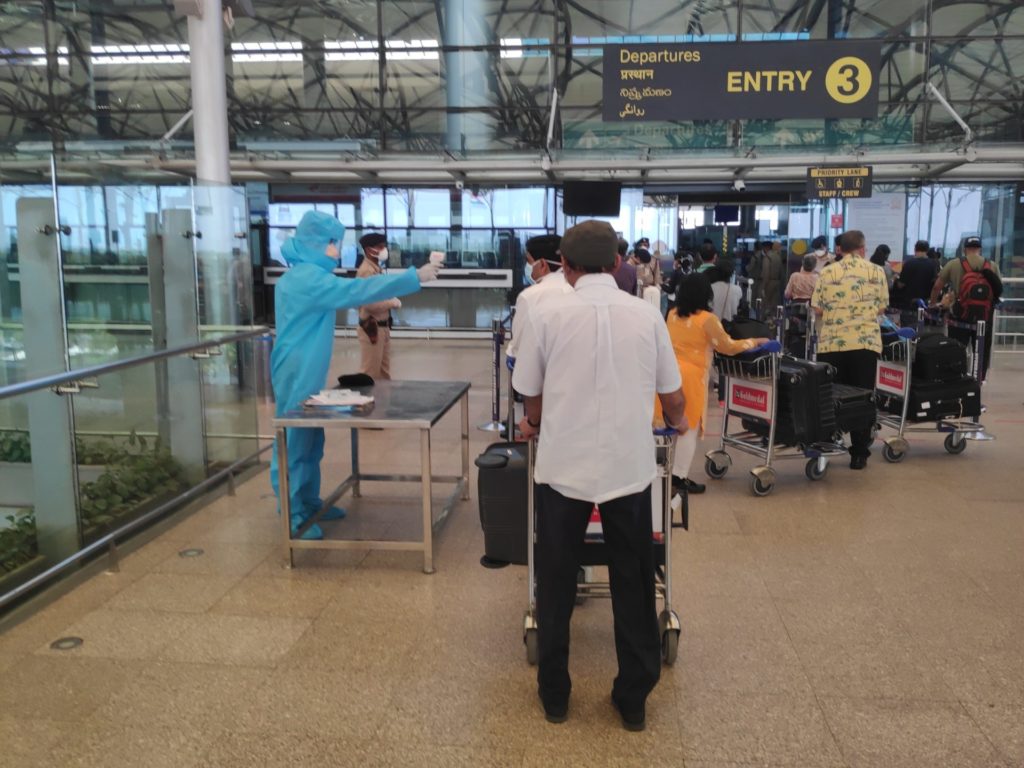
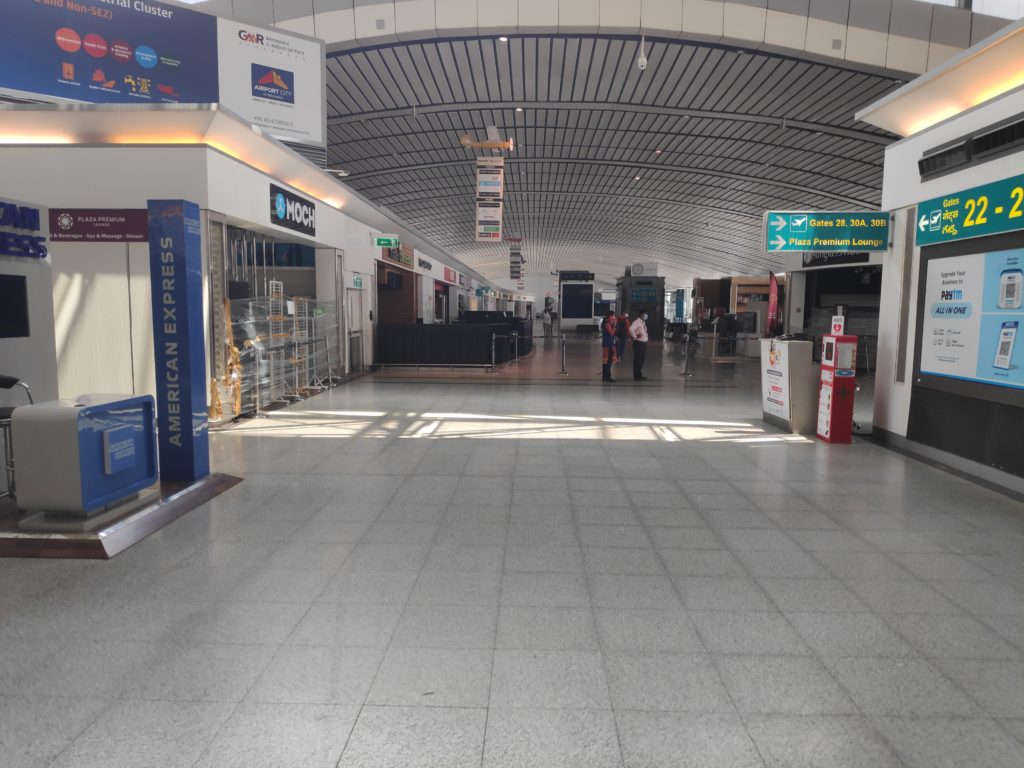
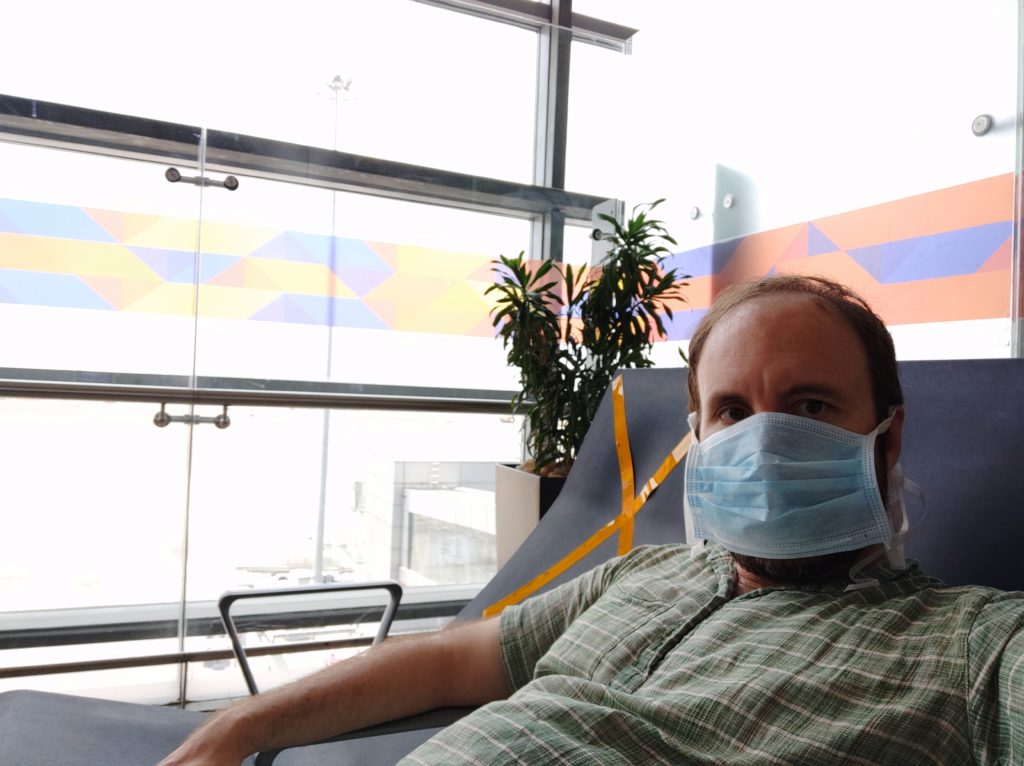
Things started to go less smoothly, however, when we got to the airport in Mumbai. The line to get into the international terminal was long and the air was hot and humid. Ominously, a murder of crows swirled above our heads. Once inside the airport, the air was only hotter as their was no a/c and no breeze and I was really starting to sweat. And we’re not talking a light sheen, this was Patrick Rafter after five sets in the Australian Open, looks like I fell in a pool, sweat. My dampness led the check-in lady to ask me if I was ok, and the customs guy to tell me to calm down. Finally at the gate, I reached into my bag to see if I had something to fan myself with and all I could find was a Haggadah (a small Jewish religious text). This being right after Passover, I figured God would be sympathetic to a guy on a hot, arduous journey home, so I went for it.
Perhaps I was wrong about that, as things went downhill from there. An airline employee somehow opened the wrong door of the plane and triggered an evacuation slide. For some reason this meant they could not seat anyone in the last eight rows of the plane, where of course, yours truly’s seat was assigned. The affected passengers surged toward the desk while the employees shouted that we needed to maintain social distancing and sit down. After extracting a promise from the woman at the desk that the few available seats would be assigned randomly, I followed instructions and sat down. Of course, the seats were quickly given to the angry people who refused to sit down (sorry, I mean the ones with terribly pressing reasons why they couldn’t be stranded in Mumbai). The rest of us (who affectionately began calling ourselves the 37) were promised food and lodging at a nearby hotel, and a new flight to Atlanta in three days.
Unfortunately, to get to that hotel, we needed to go back through customs. At the exit, our passports were taken and we were told to wait. A hot and sweaty 45 minutes later, I sat on the airport floor thinking things could not possibly get worse, when the airport was flooded with mosquitos. Another 45 minutes later, our passports were returned. After a series of queues to record our names and passport numbers into multiple identical-looking giant ledgers (it’s amusing to picture the enormous government warehouses that must be required to store all these ledgers), at 1:30 am, we finally were bundled into minivans headed for the hotel. Join us next time for Exodus: Part II The Promised Hotel.
